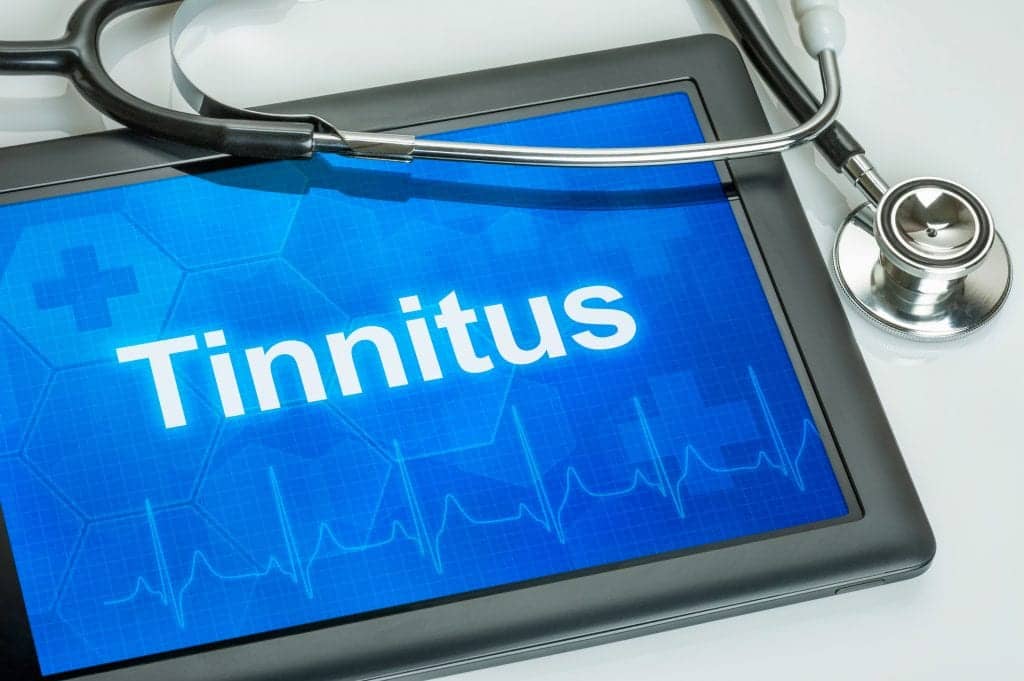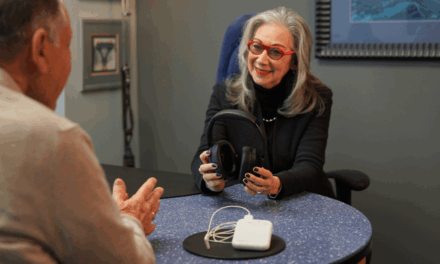Medical device company, Neuromod Devices Ltd, announced that it has launched Ótologie, a “specialist telehealth service for tinnitus.” This new service will provide tinnitus patients, throughout the United Kingdom and Europe, with a private care option to avoid waiting lists and give them immediate access to treatment from its telehealth service.
The establishment of Ótologie comes as 45% of patients waiting to start treatment with a public Ear, Nose, and Throat (ENT) consultant faced a waiting time of more than 18 weeks, according to NHS Englandi. It also follows research from Neuromod which found that more than three quarters of people living from tinnitus in the UK have never received any treatment for their condition.
The research, which polled 251 people with tinnitus across the UK, found that 76.1% of respondents have never used any form of tinnitus treatment. It also revealed that 67.7% of those polled don’t feel adequately informed about tinnitus.
Neuromod’s establishment of Ótologie follows a pilot by the company to provide a telehealth service for tinnitus care to UK patients in 2021. Neuromod has launched Ótologie to provide “quick access to tinnitus care from qualified healthcare professionals who can prescribe a range of proven treatments including Lenire, Cognitive Behavioral Therapy (CBT), and hearing aids.”
Tinnitus, commonly known as “ringing in the ears” affects between 10 and 15% of the global population and the British Tinnitus Association (BTA) estimates that more than seven million people suffer from this condition in the UK alonei[i].
In accordance with National Institute for Health and Care Excellence (NICE) guidelines, many tinnitus patients are referred to public ENT waiting lists and studies have estimated that treating tinnitus costs the NHS £750 million (USD $860 million) annuallyiii. The estimated cost to society caused by tinnitus reaches approximately £2.7 billioniii (USD $3.1 billion) demonstrating the need for private care options specifically for tinnitus, such as Ótologie, to increase the number of people tinnitus accessing treatment by avoiding waiting lists.
Speaking on the launch of Ótologie, Dr Ross O’Neill, CEO of Neuromod Devices said: “Studies have shown that treating tinnitus costs the NHS approximately £750 million every year and it also estimates that the cost to society reaches around £2.7 billioni[ii]. This, combined with lengthy waiting lists, shows the significant healthcare challenge treating people with tinnitus poses.
“Ótologie’s vision is to tackle this significant challenge by enabling patients to get started with a tinnitus treatment plan almost immediately from anywhere in the UK or indeed Europe. Our long-term aim is to create the first globally recognized approach to tinnitus care and management.”
Ótologie’s team of audiologists and therapists have experience treating tinnitus patients with the latest evidence-based treatments. Following clinical best practices, they assess each patient and recommend a personalized treatment plan from options which can include the Lenire tinnitus treatment device; Tinnitus Therapy (a form of Cognitive Behavioral Therapy or CBT); or hearing aids suitable for people with tinnitus, according to the company.
Speaking on Neuromod’s research, Ótologie’s Head of Tinnitus Care, audiologist Anita Sayers said: “The results of the poll, which show that 76% of UK patients have never received any treatment for their tinnitus is stark and worrying. It also highlights a clear gap in knowledge of various tinnitus treatments options available to those suffering from tinnitus. We want to change that.
“People who live with tinnitus are looking for credible, expert advice and treatment plans to help them manage the impact that bothersome tinnitus has on their day-to-day life. And they want to access these treatment plans quickly. With Ótologie, our goal is to build a patient-centered service to provide groundbreaking and evidence-based tinnitus treatments, coupled with the empathy that patients need to feel supported at every stage of their tinnitus journey. We are really excited to be able to expand our services and tinnitus care offerings to patients across the UK and beyond.”
The launch of Ótologie follows Neuromod’s establishment of its US subsidiary, Neuromod USA Inc. To date, Neuromod has raised significant venture equity and debt financing to fund ongoing expansion of the availability of Lenire in Europe and the organization’s FDA submission process in the US.
This funding has been led by Fountain Healthcare Partners, an international life science-focused venture capital fund which invests in entrepreneurs and companies with disruptive technologies or products that have a clear pharmacoeconomic benefit.
Neuromod specializes in non-invasive neuromodulation technologies and has previously developed Lenire, a non-invasive bimodal neuromodulation device which has been “clinically proven in large-scale clinical trials to reduce tinnitus symptoms.”
The first of these clinical trials, involving 326 participants, was published in October 2020 in Science Translational Medicine and reported significant improvements in patients’ tinnitus symptomsiv. 86.2% of treatment-compliant participants reported an improvement in their tinnitus symptoms after a 12-week treatment periodiv v. When followed up 12 months post-treatment, 80.1% of these participants had sustained the improvementsiv v. This study represents one of the largest and longest followed-up clinical trials ever conducted for a tinnitus deviceiv.
References
iNational Health Service (NHS) website. NHS referral to treatment (RTT) waiting times data October 2021. December 9, 2021. https://www.england.nhs.uk/statistics/wp-content/uploads/sites/2/2021/12/RTT-statistical-press-notice-Oct-21-PDF-421K-03857.pdf.
[i]i Wray N. More people living with tinnitus than previously thought. British Tinnitus Association (BTA) website. https://www.tinnitus.org.uk/blog/more-people-living-with-tinnitus-than-previously-thought. Published April 1, 2019.
i[i]i Stockdale D, McFerran D, Brazier P, et al. An economic evaluation of the healthcare cost of tinnitus management in the UK. BMC Health Serv Res. 2017;17(577).
iv Conlon B, Langguth B, Hamilton C, et al. Bimodal neuromodulation combining sound and tongue stimulation reduces tinnitus symptoms in a large randomized clinical study. Science Translational Medicine. 2017;12(564).
v As measured by Tinnitus Handicap Inventory score
Source: Neuromod






